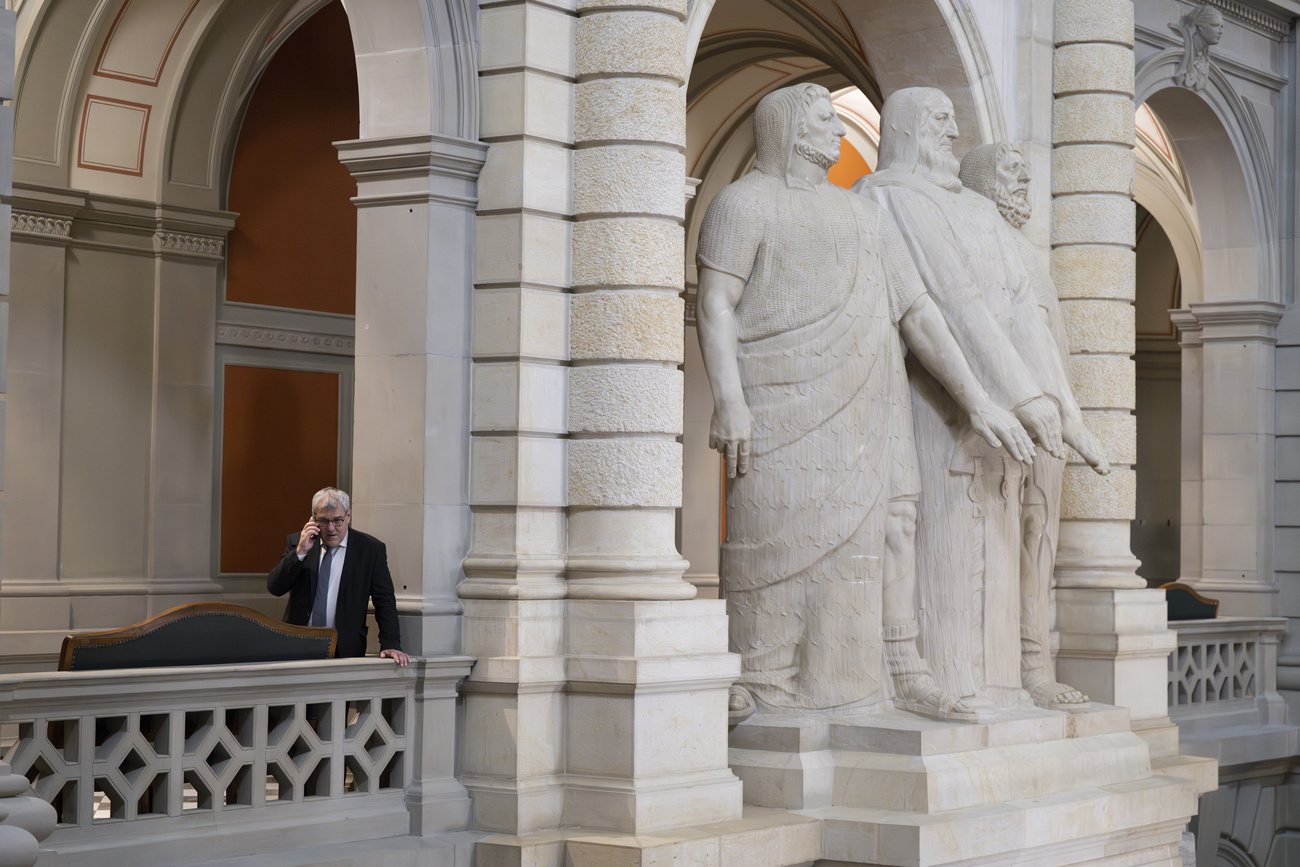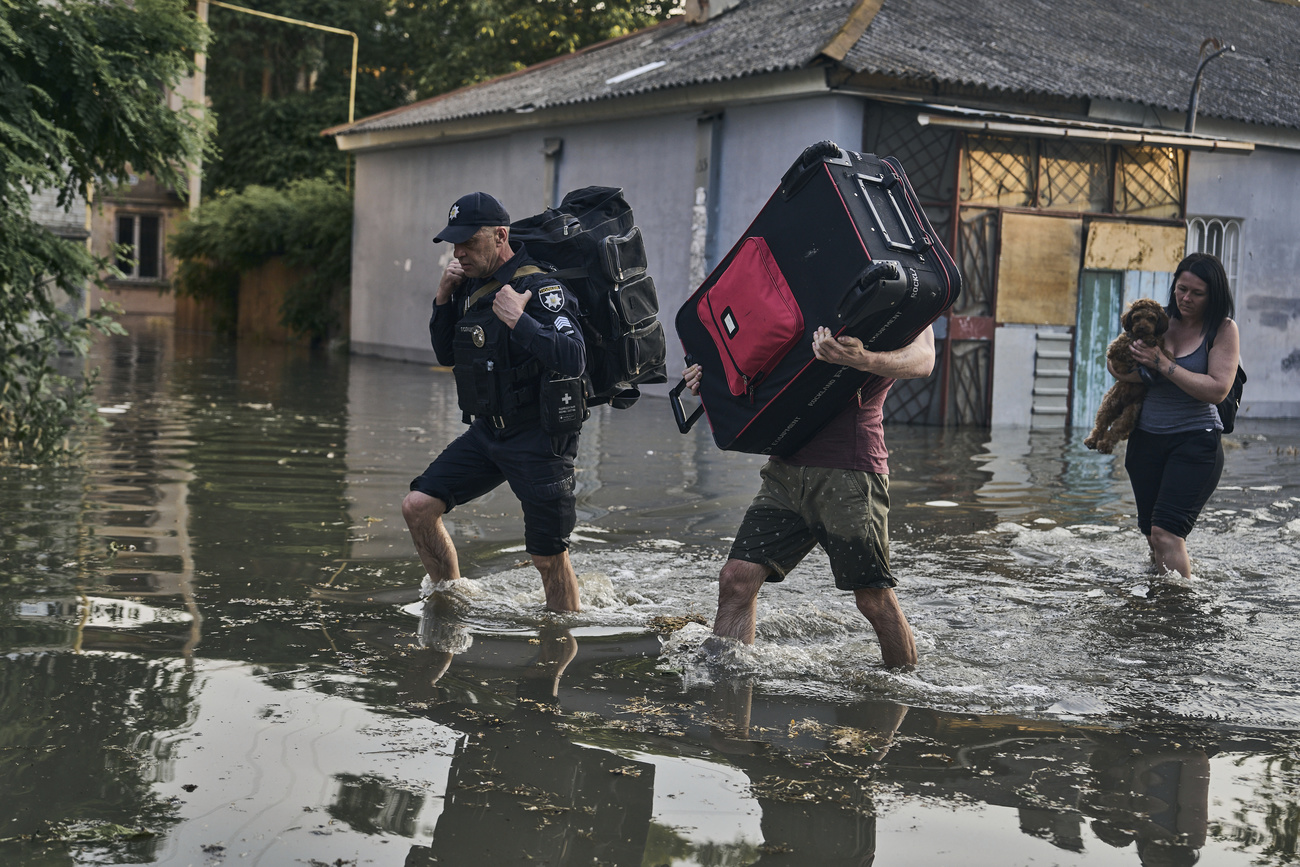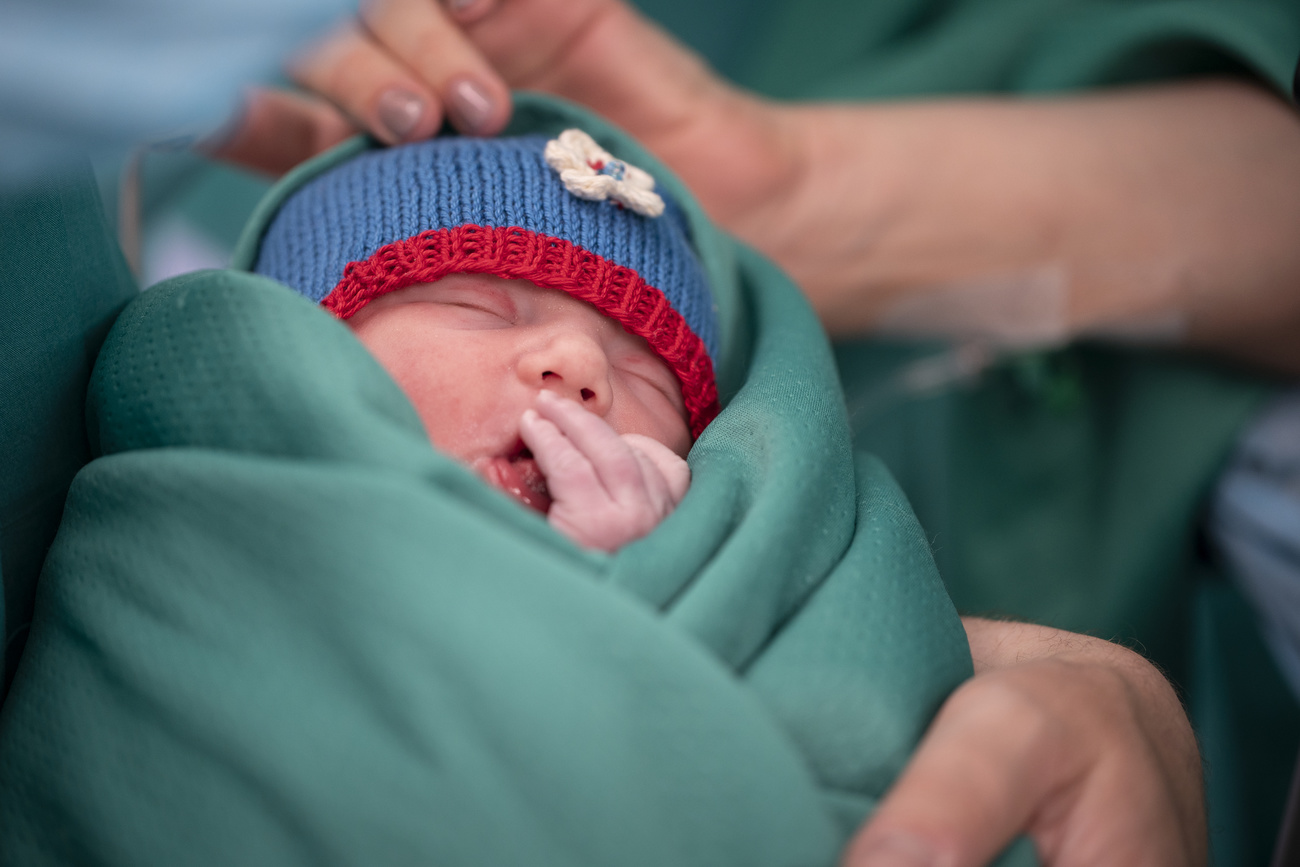
Switzerland Today
Dear Swiss Abroad,
Just had a baby boy but not sure what to call him? Name him Fritz and the Fritz Association Erlinsbach, which is facing extinction, will give you five francs. Here are the latest news and stories from Switzerland – some more serious than others – on Wednesday.

In the news: Catastrophic flooding in Ukraine, the world’s most expensive cities for expats, and a “Frankenstein” watch.
- Following the breach of the of the Nova Kakhovka dam in southern Ukraine and widescale flooding, Switzerland’s ambassador told the UN Security Council that the priority was to protect the civilian population, but he warned of risks to the environment, as well as to energy and food security. “Systematic military attacks on civilian infrastructure are unacceptable and constitute a serious violation of international humanitarian law,” the Swiss foreign ministry tweeted.
- New York has leapfrogged Hong Kong as the world’s most expensive city to live in as an expat, while skyrocketing rents saw Singapore crash into the top five, according to a study. Soaring inflation and rising accommodation costs were cited as reasons for New York topping ECA International’s Cost of Living Rankings for 2023, while Geneva and London remained in third and fourth places.
- Swiss watchmaker Omega alleged three former employees were involved in a criminal plot that resulted in the sale of a fake Speedmaster at auction for CHF3.1 million ($3.3 million) in 2021. The timepiece, an Omega Speedmaster with “Broad Arrow” hands from 1957, was in fact a “Frankenstein” watch, composed of an amalgam of mostly authentic parts from other vintage watches.

With less than two weeks until voting day, a poll published this morning shows the Swiss are likely to approve a new climate law, an overhaul of business tax rules, and an update to the country’s Covid-19 legislation.
However, support for the climate law, which would commit Switzerland to reaching carbon neutrality by 2050, has faded over the past month: 63% now say they are in favour, down nine percentage points since a poll in May. Some 60% of voters from the 800,000-strong Swiss Abroad community back the law.
A marked lack of suspense surrounds the second vote on June 18, a proposed tax-rate hike for multinational companies: 73% of the population backs the OECD-led plan, which will slap a minimum tax rate of 15% on Swiss-based companies with a turnover above €750 million (CHF728 million). That leaves 24% of voters rejecting the law, and 3% undecided – response rates which are almost identical for Swiss citizens living abroad.
The latest vote on Switzerland’s Covid-19 legislation is also not facing serious opposition. Opinion has not hugely shifted since May, and voters look set to approve – for a third time – the legal basis for the authorities’ handling of the coronavirus pandemic: 67% are in favour, 31% against, and 2% undecided.
More

Just had a baby boy but not sure what to call him? Name him Fritz and the Fritz Association Erlinsbach will give you a fiver ($5.50).
“No one’s called Fritz anymore,” laments Fritz Bürgi, the 84-year-old president of the 90-year-old club, in the Aargauer ZeitungExternal link. “We’re not holding our breath that we’ll be recruiting any younger Fritzes any time soon.”
While the name was still widely used 60 years ago, little Fritzes today are few and far between: Liam and Matteo currently lead the hit parade of boys’ names in Switzerland. “In the old days it was also traditional for a father to pass on his first name to one of his sons,” Bürgi recalls.
But hang on – not one of his own three sons is allowed to join the Fritz Association. “I screwed that up a bit,” he laughs, explaining that when his sons were born, the name was already fairly uncommon. What’s more, there was always confusion when father and son had the same name and also the same address. “That was sometimes a bit difficult,” admits Bürgi, whose father was also a Fritz.
The association’s statue book of 1933 contains numerous regulations. For example, it was customary to pay an association fee. “Half a franc a month,” Bürgi says. “Every member who graced the world with a young Fritz was rewarded with five francs.” Is this still the case? “In the past few decades, unfortunately, this question hasn’t come up at all,” he says. “We have no knowledge of any children baptised with the name Fritz in recent years.” However, he says they would certainly organise something if another Fritz came into the world and the parents got in touch.
The association, which meets twice a year for a party and an excursion, currently has 11 members, but the youngest is 57. “All the others are pensioners,” Bürgi explains. The club is thus facing extinction. Therefore, he would make an exception if Fritz were a child’s middle name – and even people with Fritz as a surname would be considered.
As it turns out, 33 Fritzes have been born in Switzerland in the past ten years, according to the Federal Statistical Office. But it will take at least a decade before they can join the association in northern Switzerland. “We accept only adult Fritzes,” Bürgi explains.

In compliance with the JTI standards
More: SWI swissinfo.ch certified by the Journalism Trust Initiative

